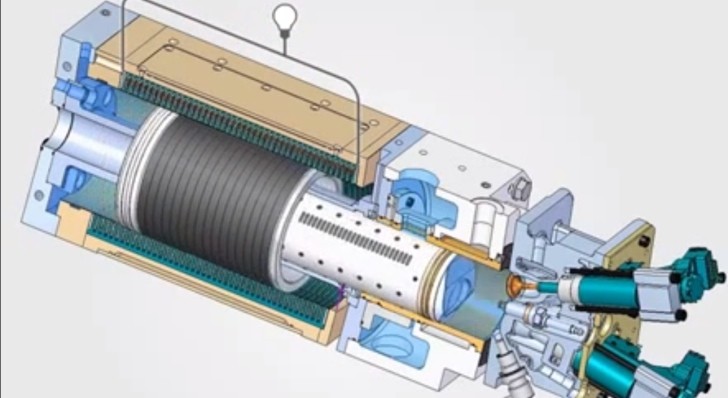It’s pretty obvious that electricity is the future for our cars. But as any EV owner now can tell you, it has some limitations. Range and charging times are their biggest limitations, but the Toyota has two solutions to counter their effects. Fuel cells and Free Piston Engine Linear Generators (FPELG).
As we’ve detailed Toyota’s fuel cell technology in the past, let’s take a look at the company’s other solution - the FPELG.
Toyota isn’t the only automaker to be working on such idea and the opposed-piston engine is not a new idea, but it’s sort of a race for who will put it to mass production.
First, let’s take a look at what a FPELG is.

As you can see in the picture above, the free piston engine is basically a combustion engine with no crankshaft. Instead of being connected to the crankshaft that turns linear motion into a rotational one that can be used to power generators and wheels, the piston has a cylindrical permanent magnet at its opposite end. This is encased in a cylindrical coil and the whole assembly is called a linear generator.
Combustion taking place at the other end of the piston is pretty much similar, pushing the piston and magnet through the coil, while a gas-filled chamber plus a spring at the opposite end will throw the piston back and start another cycle.
The advantage of such a contraption is that it is less complicated than a normal combustion engine by using fewer parts, it’s very compact and can easily be used as a range extender for electric vehicles.
On the downside, the engine is not equilibrated and big vibrations are generated. This could be eliminated by putting two cylinders in a boxer formation, so opposed vibrations would cancel out. But here comes the second disadvantage - without a crankshaft to dictate the combustion process, synchronizing the two pistons is the biggest problem right now.
That’s what Toyota Central R&D Labs are currently working on - to realize the generator system with high efficiency and low vibration. Currently, their prototypes (two of them) are only 13 hp (10 kW). It doesn’t sound much, but two of them are enough to push a Yaris or Corolla-sized vehicle on the highway up to speeds around 76 mph (120 km/h).
Toyota isn’t the only automaker to be working on such idea and the opposed-piston engine is not a new idea, but it’s sort of a race for who will put it to mass production.
First, let’s take a look at what a FPELG is.

As you can see in the picture above, the free piston engine is basically a combustion engine with no crankshaft. Instead of being connected to the crankshaft that turns linear motion into a rotational one that can be used to power generators and wheels, the piston has a cylindrical permanent magnet at its opposite end. This is encased in a cylindrical coil and the whole assembly is called a linear generator.
Combustion taking place at the other end of the piston is pretty much similar, pushing the piston and magnet through the coil, while a gas-filled chamber plus a spring at the opposite end will throw the piston back and start another cycle.
The advantage of such a contraption is that it is less complicated than a normal combustion engine by using fewer parts, it’s very compact and can easily be used as a range extender for electric vehicles.
On the downside, the engine is not equilibrated and big vibrations are generated. This could be eliminated by putting two cylinders in a boxer formation, so opposed vibrations would cancel out. But here comes the second disadvantage - without a crankshaft to dictate the combustion process, synchronizing the two pistons is the biggest problem right now.
That’s what Toyota Central R&D Labs are currently working on - to realize the generator system with high efficiency and low vibration. Currently, their prototypes (two of them) are only 13 hp (10 kW). It doesn’t sound much, but two of them are enough to push a Yaris or Corolla-sized vehicle on the highway up to speeds around 76 mph (120 km/h).

